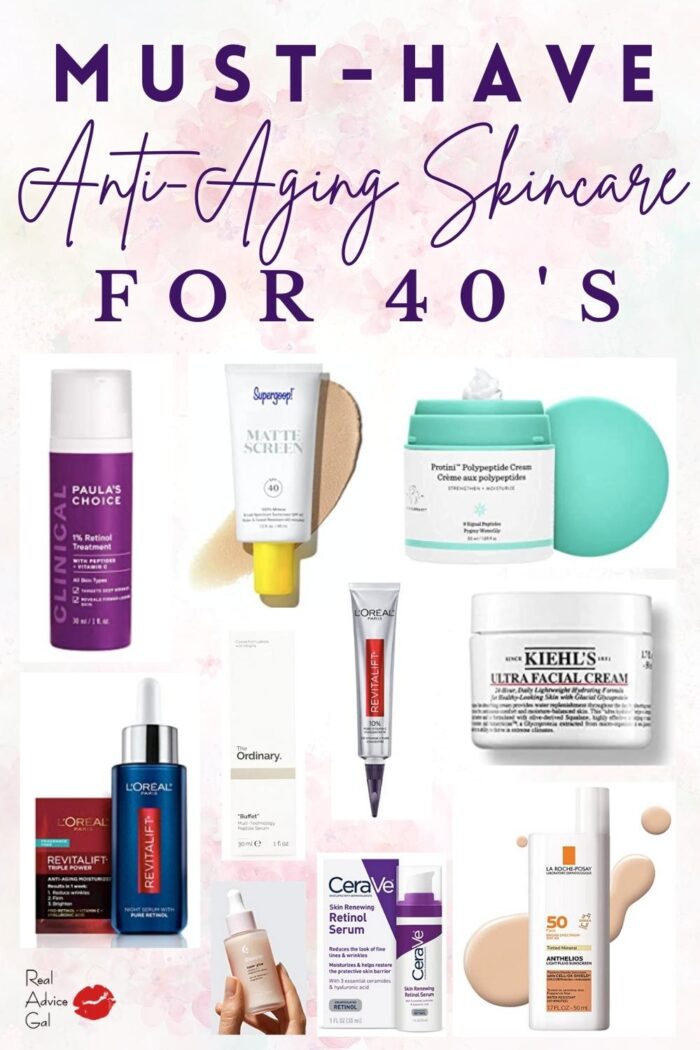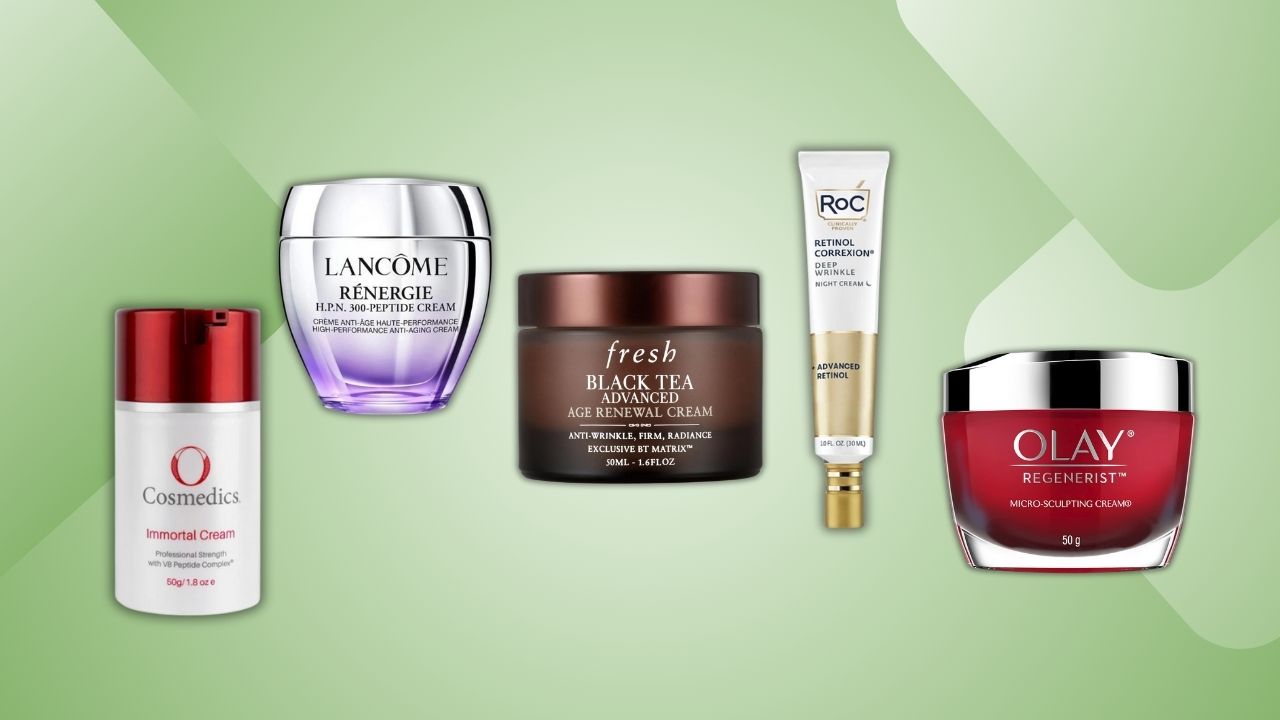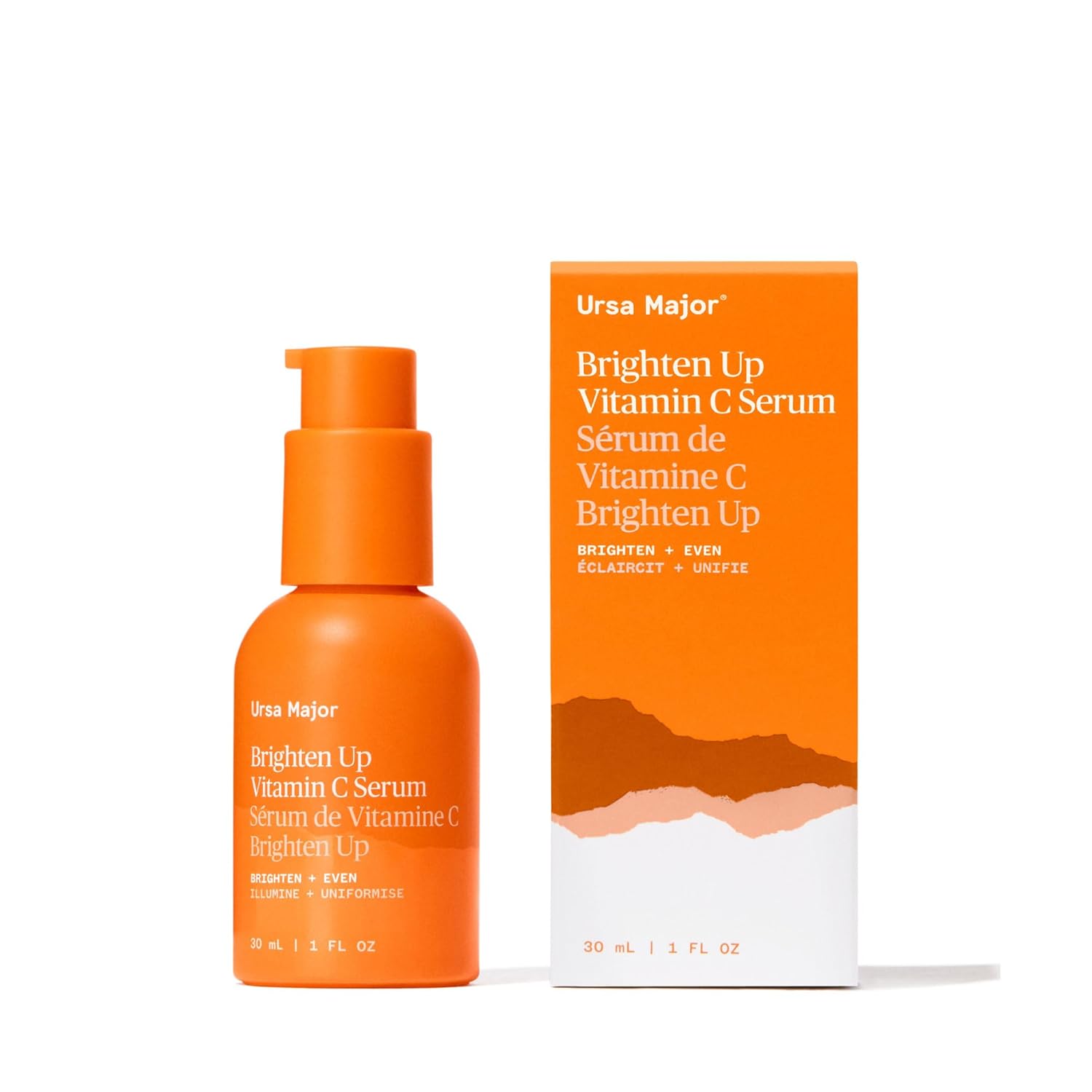Best Skin Care for Aging Skin: Aging is a natural part of life, but your skin doesn’t have to give away your age. You deserve to feel confident and vibrant, no matter how many candles are on your birthday cake.
That’s why finding the best skin care for aging skin is crucial. Imagine waking up each morning to a reflection that feels as youthful and radiant as you are inside. Picture your skin feeling smoother, firmer, and more luminous. It’s not just a dream; it’s within reach.
You’ll discover simple yet effective skincare strategies that can transform your skin, boosting your confidence and helping you embrace every beautiful year. Stay with us to uncover the secrets that could change your skincare routine—and your life—forever.

Credit: realadvicegal.com
Signs Of Aging Skin
Aging skin is a natural part of life, but understanding its signs can help you make informed decisions about your skincare routine. As you age, your skin undergoes several changes, which can affect its appearance and health. Recognizing these signs early can give you a head start in maintaining a youthful glow. Let’s dive into some of the most common signs of aging skin and how you can address them effectively.
Fine Lines And Wrinkles
Fine lines and wrinkles often appear as the first noticeable sign of aging skin. You might see them around your eyes, mouth, and forehead. These lines are primarily caused by repetitive facial movements and the gradual loss of collagen. Using a hydrating moisturizer and sunscreen can help minimize their appearance. Have you ever noticed how your skin feels after a long day outdoors without protection? That’s your skin crying for help.
Loss Of Elasticity
Loss of elasticity can make your skin look saggy and less firm. This happens as elastin fibers break down over time. A lack of elasticity can be frustrating, especially when you notice it in areas like your jawline and cheeks. You can combat this by adding a retinol serum to your routine, which promotes skin renewal. Remember the time you pulled at your skin, expecting it to bounce back, only to find it stayed put? That’s elasticity in action—or lack thereof.
Uneven Skin Tone
Uneven skin tone is often due to sun exposure and hormonal changes. You might see dark spots or discoloration, which can make your skin look dull. Brightening creams with vitamin C can be your go-to solution for this issue. Imagine looking in the mirror and seeing a patchwork of different shades on your skin. Does it ever make you wonder if there’s a way to even things out? There is, and it starts with understanding your skin’s needs.
By identifying these signs, you can tailor your skincare routine to address them effectively. What changes will you make today to support your skin’s journey through time?
:max_bytes(150000):strip_icc()/peo-best-anti-aging-products-of-2023-tout-de16a69ca05b406c90f192b056fd05cb.jpg)
Credit: professionalbgroup.com
Essential Skincare Ingredients
Aging skin benefits from essential ingredients like retinol and hyaluronic acid, which help reduce wrinkles and boost hydration. Antioxidants such as vitamin C protect against damage and improve skin texture. Regular use of these elements keeps skin looking youthful and healthy.As we age, our skin naturally changes, and so should our skincare routine. To maintain a youthful glow, it’s essential to focus on ingredients that specifically target aging concerns. But what are these magic ingredients? Let’s dive into the essentials that can make a real difference in your skincare regimen.
Retinoids For Renewal
Retinoids are a powerhouse when it comes to renewing aging skin. These vitamin A derivatives speed up cell turnover, revealing fresher, smoother skin underneath. I remember hesitating to try retinoids because I heard they can be harsh, but starting with a low concentration worked wonders for me. Gradually increase usage to avoid irritation. This ensures your skin adapts and benefits from its rejuvenating properties. Don’t forget to wear sunscreen, as retinoids can make your skin more sensitive to the sun.
Hyaluronic Acid For Hydration
Hyaluronic acid is like a tall glass of water for your skin. It’s a naturally occurring substance in the body that attracts and holds moisture, keeping your skin plump and hydrated. After incorporating it into my routine, my skin felt instantly more supple and less prone to dryness. Look for serums or moisturizers with hyaluronic acid, especially if you have dry skin. Applying it on damp skin can enhance its hydrating effect. Are you giving your skin enough hydration to combat signs of aging?
Antioxidants For Protection
Antioxidants are crucial in defending your skin against environmental damage. Ingredients like vitamin C, E, and green tea extract neutralize free radicals that accelerate aging. Adding an antioxidant-rich serum to my morning routine made my skin appear brighter and more resilient. Consider layering antioxidants under your sunscreen for an extra layer of protection. This combination can significantly reduce the appearance of fine lines and spots. Are you protecting your skin from the daily onslaught of environmental stressors? Choosing the right ingredients can transform your skincare routine and help you tackle aging skin effectively. Implement these powerful ingredients and see the difference they can make. Your skin deserves the best care, and these essentials are a great place to start.
Daily Skincare Routine
Caring for aging skin involves using gentle cleansers and rich moisturizers. Regular sunscreen application protects from sun damage. Incorporating retinoids and antioxidants can help maintain youthful skin.Aging skin deserves special attention, and a well-rounded daily skincare routine can make all the difference. You might wonder if those extra minutes in front of the mirror are truly worth it. Trust me, they are. I used to skip steps thinking they were unnecessary, but since committing to a full regimen, I’ve noticed a significant improvement in my skin’s texture and glow. Let’s dive into the essential components of a skincare routine that can keep your skin looking radiant and youthful.
Cleansing And Exfoliation
Start your day with a gentle cleanser to remove overnight oils and impurities. This prepares your skin to absorb the benefits of the following products. Exfoliation should be a regular part of your routine, but don’t overdo it. Twice a week is enough to remove dead skin cells and promote cell renewal. This simple step can reveal fresher and smoother skin underneath.
Moisturizing Techniques
Moisturizing is crucial for aging skin. It locks in hydration and keeps your skin supple. Choose a moisturizer rich in hyaluronic acid or ceramides to boost moisture retention. Apply your moisturizer while your skin is slightly damp. This helps seal in the moisture effectively. If you’re not doing this already, give it a try and notice the difference it makes in your skin’s plumpness.
Sun Protection Strategies
Sun protection is non-negotiable. UV rays can accelerate aging, leading to wrinkles and age spots. A broad-spectrum SPF 30 or higher should be applied daily, regardless of the weather. Consider using a tinted sunscreen or a moisturizer with SPF to simplify your routine. Remember, a little proactive sun protection today can help you avoid more serious skin issues down the road. Are you taking sun protection seriously enough? If not, now is the perfect time to start.
Lifestyle Factors
When it comes to maintaining youthful skin, the products you use are only part of the equation. Lifestyle factors play a significant role in how your skin ages. By paying attention to your daily habits, you can enhance your skin’s health and vitality. Let’s explore how diet, hydration, and sleep can help you achieve glowing skin.
Diet And Nutrition
Your skin reflects what you eat. A diet rich in antioxidants, vitamins, and minerals can combat signs of aging. Foods like berries, leafy greens, nuts, and fish are excellent sources.
Consider adding more omega-3 fatty acids found in salmon and walnuts to your meals. These nutrients help keep skin plump and reduce inflammation.
Have you tried swapping out refined sugar for natural sweeteners like honey or fruits? This simple change can reduce skin sagging and wrinkles.
Hydration Habits
Water is your skin’s best friend. Staying well-hydrated keeps your skin supple and elastic. Aim for at least eight glasses a day.
Do you often forget to drink water? Try setting a reminder or using a water tracking app. Small changes can make a big difference.
Herbal teas and fresh juices can also contribute to your daily hydration needs. They provide additional nutrients that benefit the skin.
Sleep And Stress Management
Quality sleep is essential for cell repair and regeneration. Aim for seven to nine hours each night to allow your skin to heal and refresh.
Stress can accelerate aging. Have you considered practicing yoga or meditation? These activities can help manage stress levels and promote healthier skin.
What steps do you take to ensure a restful night’s sleep? Perhaps a calming bedtime routine or avoiding screens before bed can enhance your sleep quality.
Professional Treatments
Professional treatments can make a big difference for aging skin. They offer targeted solutions to help reduce wrinkles and improve skin texture. These treatments use advanced techniques to rejuvenate and refresh the skin. Many people find these options effective for maintaining a youthful glow.
Chemical Peels
Chemical peels remove dead skin cells and reveal fresher skin beneath. They can improve skin texture and reduce the appearance of fine lines. The process involves applying a solution that gently exfoliates the skin. This treatment can lead to smoother, more radiant skin.
Laser Therapy
Laser therapy targets specific areas to boost collagen production. It helps diminish wrinkles and improve skin tone. The laser energy penetrates the skin to stimulate natural healing processes. Laser therapy is popular for achieving firmer and more youthful skin.
Dermal Fillers
Dermal fillers add volume to areas that have lost firmness. They can smooth out wrinkles and enhance facial contours. Fillers use substances that mimic natural components in the skin. Many people enjoy the quick and noticeable results of dermal fillers.

Credit: www.news.com.au
Natural Remedies
Discover the power of natural remedies for aging skin care. Gentle ingredients like aloe vera and coconut oil nourish deeply. Antioxidant-rich green tea and vitamin E enhance skin elasticity, reducing the appearance of fine lines. Embrace a glowing, youthful complexion with these effective, nature-inspired solutions.Aging skin can sometimes feel like a mystery, but the answers may be closer than you think. Natural remedies offer a gentle and effective way to enhance your skin’s appearance and health. With ingredients often found in your kitchen or local health store, you can create a skincare routine that respects both your skin and the environment. Let’s dive into some natural options that could make a difference for your skin.
Home-made Masks
Crafting your own skin masks at home can be both fun and effective. Have you ever tried a simple avocado and honey mask? The creamy texture of avocado hydrates, while honey provides soothing properties. Another easy option is a banana and yogurt mask. Mash a ripe banana and mix it with plain yogurt for a nourishing treat. Your skin will thank you for the natural goodness and moisture.
Essential Oils
Essential oils are a powerful ally in your skincare routine. Lavender oil, for instance, is known for its calming effects and can help reduce redness. Add a few drops to your moisturizer for a calming boost. Rosehip oil is another favorite for aging skin. It’s rich in vitamins and antioxidants that support skin elasticity. Consider using it as a nightly serum to replenish your skin while you sleep.
Herbal Infusions
Herbal infusions can offer a refreshing way to care for your skin from the inside out. Have you tried sipping on green tea? It’s packed with antioxidants that can help protect your skin from environmental stressors. Chamomile tea is another soothing option. Its anti-inflammatory properties can help calm irritated skin. Consider making it a part of your evening routine for both relaxation and skin benefits. By using natural remedies, you’re choosing a path that celebrates simplicity and effectiveness. Why not give these options a try and see how your skin responds? Your natural beauty could shine through with just a little extra care.
Common Mistakes To Avoid
Many overlook gentle cleansing, opting for harsh products that damage aging skin. Skipping sunscreen accelerates wrinkles and dark spots. Consistency is key; irregular routines fail to nourish skin effectively.Aging gracefully is an art, and your skincare routine plays a crucial role. However, even with the best intentions, common mistakes can sabotage your efforts. Understanding these pitfalls can help you maintain a youthful glow and keep your skin healthy.
Over-exfoliation
Exfoliation is essential to remove dead skin cells, but doing it too often can harm your skin. Many people believe that more exfoliation equals better results, but this can lead to irritation and dryness. Aim for gentle exfoliation once or twice a week, and always listen to your skin’s needs.
Ignoring Neck And Hands
Your face isn’t the only area that shows signs of aging. Your neck and hands are often neglected but can reveal your age. Treat these areas with the same care as your face by applying moisturizer and sunscreen daily.
Skipping Sunscreen
Sunscreen isn’t just for beach days—it’s an everyday essential. UV rays are a major cause of premature aging and can damage your skin even on cloudy days. Make sunscreen a non-negotiable part of your morning routine, and your future self will thank you. Have you ever found yourself guilty of any of these mistakes? It’s time to reassess your routine and make the changes your skin deserves.
Frequently Asked Questions
What Are The Signs Of Aging Skin?
Aging skin often shows wrinkles, fine lines, and dryness. You might also notice age spots and less elasticity. These changes occur due to reduced collagen production and slower cell turnover. Sun exposure and lifestyle factors can accelerate these signs.
How Can I Improve Skin Elasticity?
To improve skin elasticity, use moisturizers with hyaluronic acid and collagen-boosting ingredients. Incorporate retinol and antioxidants into your routine. Stay hydrated and maintain a balanced diet rich in vitamins. Regular facial exercises can also help.
Which Ingredients Are Best For Aging Skin?
Key ingredients for aging skin include retinol, hyaluronic acid, and vitamin C. These ingredients boost collagen production and improve skin texture. Antioxidants like green tea and niacinamide protect against environmental damage. Always choose products suited to your skin type.
How Often Should I Exfoliate Aging Skin?
Exfoliate aging skin once or twice a week for best results. Over-exfoliating can lead to irritation and dryness. Choose gentle exfoliants with enzymes or mild acids. This helps remove dead skin cells and improves product absorption.
Conclusion
Healthy aging skin requires a thoughtful skincare routine. Choose products that hydrate deeply. Look for ingredients like retinol and hyaluronic acid. These ingredients help reduce fine lines. Sun protection is crucial for youthful skin. Apply sunscreen daily, even indoors. Moisturize regularly to keep skin supple.
Regular cleansing removes impurities and boosts skin health. Consistency is key for visible results. Start with small changes and build from there. Remember, patience is part of the process. Your skin will thank you. With dedication, achieving youthful skin is possible.
Embrace the journey to healthier, glowing skin.



